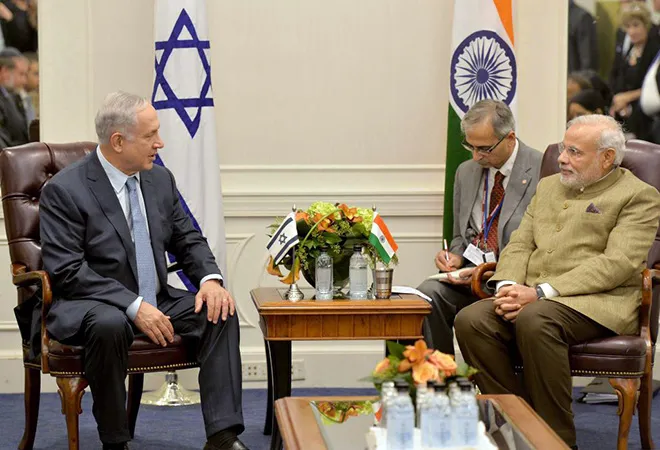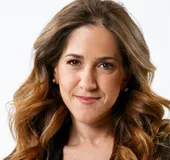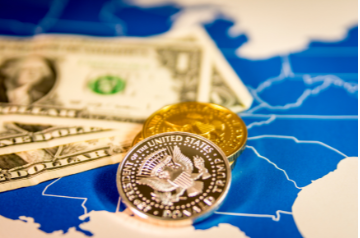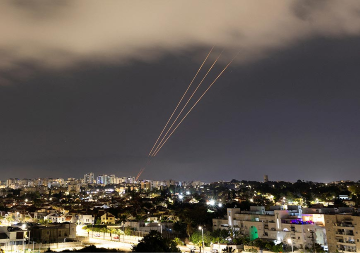
When PM Narendra Modi steps down the tarmac at the Ben Gurion airport today, he has to be given the "Trump treatment" - that is the message Israeli Prime Minister Benjamin Netanyahu has given to dozens of the Foreign Ministry officials who have been preparing for the Indian Prime Minister's visit to Israel. Citing the US president, who visited Jerusalem in late May on his first overseas visit, is a euphemism for a VIP welcome, the crème de la crème treatment, an embrace saved only for the closest of friends. Netanyahu will be escorting Modi on almost all of his events during the three-day visit – a rare practice on such a high level visit, indicating the importance attached to this bilateral. Netanyahu likes to boast how Trump made history as he was the first US president to officially visit the Jerusalem holy western wall, but Modi's visit is perhaps more historic – as it the first of its kind in 25 years of diplomatic relations between the two countries.
The Trump comparison made by Netanyahu and many of his associates in recent weeks cannot be overstated: It means the Israeli Prime Minister truly sees Modi as his BFF, and is eager to add the personal dimension in enhancing the relationship with his Indian counterpart.
Netanyahu was one of the sole world leaders to embrace the dramatic American shift of power last year, and has been embracing Modi since his 2014 victory with several one on one meetings abroad and periodical warm twitter exchanges. For weeks, the Israeli Prime Minister has been expressing to his Indian counterpart his excitement and anticipation ahead of Modi’s visit to Israel. In addition to holding the premiership, Netanyahu is also the Foreign Minister of Israel and, in recent weeks, he has personally guided Israeli diplomats to make sure nothing goes wrong and ensure that he gets one of Modi's worldwide-famous hugs.
https://twitter.com/IsraelMFA/status/881915307471904769
Modi's arrival in Jerusalem is a high point in the rapprochement and warming of relations between the two countries since he came to power, following the previous high point in 2015 when the President of India, Pranab Mukherjee, visited Israel. Earlier this year, Israeli media dramatically reported the largest defence export deal in the country's history, with the Israeli aircraft industries (IAI) announcing it will supply air defence systems worth US $ 2 billion to the Indian Army. But security and defence are not on top of Modi's Israel agenda. While the two countries have established a close security partnership over the past 25 years, the roadmap for the next 25 will likely focus more on strengthening people to people relations.
Israel, proudly bearing the title of the "start-up nation", is eager to get involved in the Indian technology and innovation sectors, to export its knowhow on water, agriculture and food security, and help Modi with some of his domestic challenges.
Culture, business and tourism will also be part of the Israeli talking points, with one magic word dominating them all – “cooperation.” "This is a totally new kind of diplomacy. We are looking at the priorities of the Indian government, and they are doing the same, and we are mixing a joint table of them all. We have identified those areas in which each side has a comparative advantage and can help the other one with. The name of the game is cooperation", Israel's ambassador to India Daniel Karmon said in a special press briefing this week.
Jerusalem was also happy with Modi's choice of itinerary – and the fact that he will not visit Ramallah or the Palestinian Authority. India was the first non-Arab country to recognise the Palestinian Liberation Organization (PLO) as the sole representative of the Palestinian people and consistently supports the right of the Palestinians to a state; last year, Indian Minister of External Affairs, Sushma Swaraj, opened her visit to the region with a visit to the Mukataa presidential compound in Ramallah and even laid a wreath on the tomb of former PLO and PA chair, Yasser Arafat, a ritual which Jerusalem does not appreciate very much. Modi decision to dedicate his entire trip to Israel, having hosted Palestinian president Mahmud Abbas in Delhi two months ago, has been welcomed in Israel
https://twitter.com/narendramodi/status/881851494063943684
It remains to be seen whether Modi will decide to use any of the occasions or events to reiterate India's support and commitment to establishing a Palestinian state, but Netanyahu will probably appreciate no mention of the Palestinians at all. The Israeli Prime Minister's foreign policy has focused on thwarting the diplomatic battle that the Palestinians have been waging against Israel in multilateral and international forums. Helping Netanyahu’s efforts, in the past three years under Modi’s leadership, India has changed its voting pattern at the UN and other international forums and has abstained from some Arab and Palestinian-sponsored resolutions on the Palestinian issue; India has traditionally voted in favour of such resolutions.. While expressing his gratitude to the dramatic change of tone, Netanyahu is likely to ask Modi to continue in the same direction and help it in fighting the UN’s anti-Israel bias.
Another “no-no” issue that both leaders will probably avoid addressing out in the public is Iran. Tehran is a growing Indian trade and investment partner, but is also Israel's worst nightmare. After failing to stop the July 2015 nuclear deal with P5+1, Israel has been focusing its efforts on monitoring and verifying Iran's compliance with the deal, as well as its periodic ballistic missile testing, frequently accompanied by implicit threats towards Israel. Netanyahu regularly warrants the international community about Tehran's support of the neighbouring Lebanese Hizbullah terror group and its emerging dominance in the Syrian civil war. But he probably will not want to ruin the Modi celebration with such a contentious topic.
While Modi's visit to Israel is aimed at boosting civil and economic ties, its main importance is its existence – the mere fact that it is happening.
Israel-India ties have been constantly growing since 1992, but it was always underplayed. Delhi's close alignment with the Palestinian cause and the Arab bloc kept most of the developments in the bilateral relationship with Jerusalem behind the scenes. Modi has changed the dynamics, and is gradually bringing the relationship to the front stage. His visit will complete the unveiling of the curtains, and Jerusalem is hoping this visibility will make the Tel Aviv-New Delhi flight route one of the busiest in the world. Netanyahu himself is hoping to take that flight by the end of the year, and if all goes well, Modi's farewell gift might be an official invitation.
The views expressed above belong to the author(s). ORF research and analyses now available on Telegram! Click here to access our curated content — blogs, longforms and interviews.




 PREV
PREV


